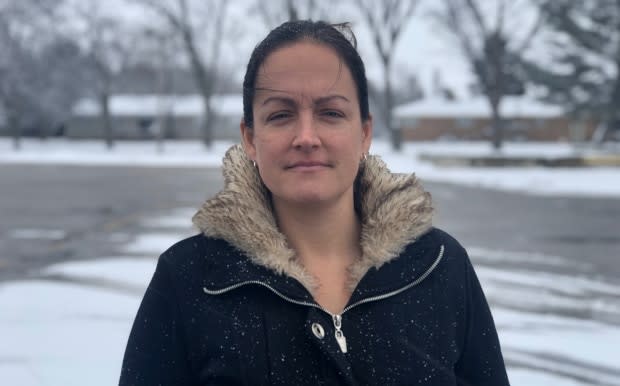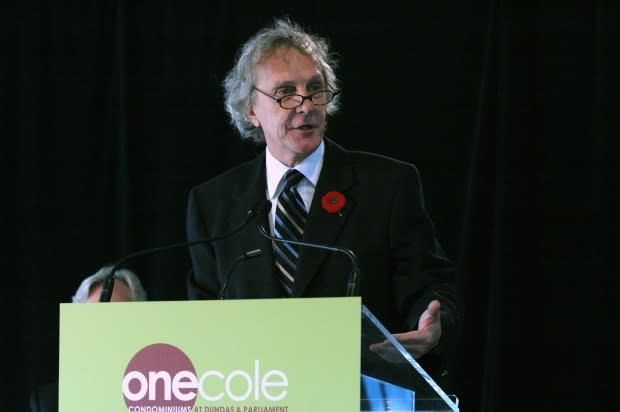Essex, Ont. mayor charged with violating Elections Act
Essex, Ont. Mayor Larry Snively has been charged by Ontario Provincial Police (OPP) for allegedly "procuring" ineligible voters to cast ballots during the town's October 2018 municipal election.
OPP charged Snively under the Municipal Elections Act of Ontario after an investigation into the "reported misuse of proxy voters during the 2018 municipal election," according to a Wednesday media release.
Snively won by 117 votes, with 2,261 ballots cast in his favour, according to the official results of the 2018 election. Runner-up Ron Rogers secured 2,144 votes. Four people ran in Essex's mayoral race that year.
Essex Coun. Sherry Bondy, who was the first to raise concerns about irregularities with proxy votes in 2018, is calling for Snively to resign. Bondy told CBC News she will be seeking an emergency council meeting and "this is going to change the landscape of Essex council."
"I fell to the floor and I started crying because this has been a long journey for justice," said Bondy. "I do realize that the journey isn't over yet — but the fact that charges have been laid by the OPP means there's evidence there."
As CBC News was the first to report, the OPP began its investigation into the 2018 municipal election in October that year, after Essex received two official complaints that proxy ballots had been signed and cast without the knowledge or permission of the eligible voters.
"As a result of the investigation, the OPP has charged [Larry Snively] … with the offence of Procuring Persons to Vote in a Municipal Election when those Persons were not entitled to do so, contrary to Section 89(d) of the Municipal Elections Act," the OPP said in the media release.
Bondy said she's calling on council to discuss the matter "sooner rather than later" in response to the public outcry. She adds Snively should also step down from the Essex Police Services Board.
"How are people going to trust him?" she asked. "If we do not have democracy in a municipal council, then you don't have anything."
Speaking with The Canadian Press, Snively wouldn't comment on the case, but said he didn't believe he had done anything wrong and that he didn't plan to step down as mayor.
A statement from the Town of Essex said officials are aware of the charge, but that there are no additional details available at this time.
"To maintain the integrity of the process, the Town of Essex and its administration will not comment further at this time. Any inquiries from the public about the investigation should be made to the OPP."

CBC News obtained 94 proxy forms used in the election and found irregularities with approximately a third of them. They contained errors ranging from minor issues such as a missing name, to more serious issues including forms that were not signed and one that was not certified by the town clerk.
In several cases, the box that indicates how the proxy voter knows the original voter is left blank. The law requires a proxy voter to declare that relationship because a proxy is only allowed to vote for one other person, unless they're related to the voter.
According to the Ontario Municipal Elections Act, an individual convicted of an offence could face a fine up to $25,000. Also if the presiding judge found the individual knowingly committed the offence, the penalty could include up to a 6-month jail sentence.
'Going to be a thorny problem,' says councillor
Essex Coun. Chris Vander Doelen said he wasn't certain that Snively should step down as mayor as a result of the charge against him.
"It's going to be a thorny problem," said Vander Doelen, adding that he's not sure "somebody who is accused of something that isn't proven has to be assumed to be guilty and loses their job."
"I think that would be a miscarriage of justice," he said. "If this was a matter of financial improprieties ... then yes, I would say that removal would be required. But this is a provincial offence ... and I'm not sure that means a guy can't be mayor anymore and has to be removed from office."

Vander Doelen said he's afraid that the charge will drain resources, divert attention and waste money "in something that really goes nowhere, because I don't think this is a major issue."
Vander Doelen has yet to discuss the charge against Snively with council and he's not sure what the other councillors will do.
'Win for democracy': municipal expert
Mitchell Kosny, professor emeritus at Ryerson University as well as the former director of the university's school of urban and regional planning, said a charge like the one against Snively is a "win for democracy."
"In an era where we don't trust process a lot, for lots of the right reasons sometimes, this is a really good example from the perspective of ... accountability, representation, citizens [and] local democracy."
He said the charge does have implications for the municipality's relationship with the province.

"Money comes from the province, so what kind of confidence does that then say about your relationship with that other level government," he said. "That's not good. So confidence, worry, fear and it's the old 'What the hell else is going on?'"
Kosny said he hates to see problematic perceptions about politicians reinforced."I think people have a jaundiced view of politicians in general," he said. "And while these kinds of issues aren't rampant that I know, it raises that, 'Oh God, here they are, they're at the trough again, they're all a bunch of bums.'"
Snively's lawyer, Pat Ducharme, said his client is in good spirits and is confident they can beat the charge. The Essex mayor is scheduled to appear in a Windsor court Mar. 30.

